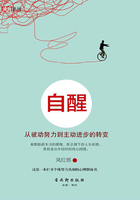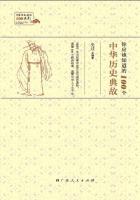As I typed,I noticed shoes crowding toward me on the sidewalk.Whispers and chuckles came from behind my back.When I finally pulled the page out of the typewriter,I looked up to see about 25 people surrounding me.
"Read it!"shouted a few of them.I did.And when it was over,they applauded.In that moment,the entire direction of my life veered off-road.I had no idea what I had discovered-or what had discovered me-but I could see that it worked.So I wrote another,and another.Rather than scaring me into silence,the crowd spurred me on.They were the ultimate deadline.
My life took on a Clark Kent-Superman split:mild-mannered reporter for the ABA by day;60-Second Novelist,fighting a battle for literature and tips,by night.
That first summer,I feared I was turning into a Stupid Human Trick:"Dan Hurley,the human story machine.Put in a word,he spits out a story!"I also feared that I'd soon get bored.But 17 years and thousands of novels later,I'm still waiting.
I've since devoted my life to writing these novels:on streets and online,at department stores and trade shows,at bars and bar mitzvahs.No venue is too ordinary or bizarre.
The longer I keep at it,the more people seem to open up to me.They give me their trust.I give them stories that are some hither to unknown confection of fact,fiction,fable and bibliotherapy.But before I type the first word,I give them something else:my ears,my eyes,my total,200-percent attention.
At this point,there aren't enough seats in Madison Square Garden to contain all the people I've written for(by now the figure is more than 25,000).From the first day,I kept a carbon copy of each story.The pile of tissue-thin duplicates now stands over four feet tall in my study.They're white,green,pink,blue and yellow-a rainbow of stories,a pillar of life's little lessons.
There may be no getting around the Stupid Human Trick aspect of it all.But I'd like to think there's something more,something that speaks to the incredible power of the life stories we tell about ourselves.After all,everyone's a born author of his or her own life story.
Here is my favorite.
At a seaside amusement park north of New York City,I wrote this story for a pretty young woman named Alice,in which I dared to predict her future:
A Walk Along the Ocean
Alice went out with a guy for four years and then he broke up with her because he was confused,which made her very unhappy at the time,but now she thinks it was for the best.In the year and a half since then,she has gone out on dates,but either she likes the guy and he doesn't like her,or vice versa.
Well,this is all pretty rotten.
So she has taken to seeing her grandmother,a very wise woman,encouraging and loving.Alice talks with her and feels much better,and finds warmth and laughter.But how will she ever find true love?
One day,after visiting her grandmother,Alice will go for a walk along the ocean,and she shall meet a man.He will ask her a question and the first thing she will think is,"Wow,is this guy something!"and they will talk and fall in love.
He might come from a ship.He might be swimming.He might be walking.Maybe he will fall from the sky,or maybe he will come from beneath the waves.But the important thing is he will come from the ocean after she goes to see her Grandma and isn't even thinking about a man.For there are plenty of fish in the sea,and many men,too.
The fact that Alice and I met not 20 yards from the water's edge didn't occur to me the day I wrote her story.Two months later I walked into a writing class and sat down in the only available seat."Remember me?"said the person beside me.It was Alice.
We've been married for nine years now and have a beautiful five-year-old daughter,Anne.We're living proof that you can rewrite your life story to find a happy ending.
And so,not only did my crazy idea to write stories on the street bring me a career,it brought me a wife and a family.I guess you could say my dream of becoming a novelist also came true.Not quite the way I had anticipated-writing novels on the street,one page in length,one person at a time.But then,no good story turns out the way you expect.
25岁那年,我在芝加哥美国律师协会当编辑,一心只想成为小说家。每天早上,我6点钟就起来写作。晚上跟朋友聊天聊到一半时,我会突然站起来,宣布有了灵感,必须马上回家写作。我的这种习惯早已为朋友们所熟知。
10月的一天,我和一位同事一起设计万圣节前夕化装服。“如果我肩上挂着打字机去当作家,你觉得这个主意怎么样?”我问,“我可以像那些卖香烟的女郎一样,一边四处转悠,一边叫卖:‘要短篇故事吗?要小说吗?’”
当然,我并没这样去做。
不过这一想法吸引了我:当众应要求写作;不是表演艺术,而是表演创作。在这一奇想后面,我感觉到,这种现场写作比我独自一人坐在办公桌前更能直接打动人们的心。这也许算不了什么,但对我的孙子来说,却会是一个了不起的传奇故事。
我试着先对我那一群文友讲了这一想法。“嗯,你们觉得怎么样?”我一边问,一边四下里瞧了瞧,就像一只等待宠爱的小狗一样期待着他们的反应。
“哎,丹,”一位朋友说,“这有点不可思议。”
我不介意——这才是关键所在!
于是在1983年4月24日,星期天,我背着一台大约制造于1953年的重达28磅的打字机,扛着一把老板椅,顶着芝加哥刺骨的寒风,来到密歇根大街上,开始营业。我把打字机放在膝上,在打字机的背面贴上标签——“60秒速成小说,立等可取”——便开始向路人发出邀请,来买一篇这样的速成品。
整件事完全成了一场心理实验。有人玩世不恭地笑一笑说:“瞧这骗人的鬼把戏!”有人则显得富于同情心:“大概是位饥肠辘辘的诗人!”还有一位女士问我是否正在出售打字机。尽管如此,我从未感到自己像今天这么有活力。
接着有一对夫妇走了过来。女人说:“我不知道你在干什么,但不管是什么,我都要一篇。”男人则苦笑着嘲讽道:“一定是什么非同寻常的玩意儿。”
我问了他们的名字(外加几个涉及隐私的问题),便开始当场写作。我给他们的故事取名叫“非同寻常的一件事”。
我一边打字,一边注意到人行道上不断有人围拢过来。站在我背后的人不是小声议论,就是乐得咯咯笑。我终于写完了,把稿纸从打字机上抽出来。我抬头一看,围观的人群竟有25人之多。
“读出来听一听!”有几个人大声喊道。我读了起来。刚一读完,他们便热烈鼓掌。就在那一刻,我的生活整个儿偏离了原来的轨道。我不知道自己到底发现了什么——或者说是什么发现了我——但我明白,我成功了。就这样,我现场写了一篇又一篇。围观的人没有把我吓得不敢作声,而是让我备受鼓舞。他们才是最后的截稿日期哩。
我仿佛有了超人克拉克·肯特那样的分身术,白天是美国律师协会温文尔雅的记者,晚上就成了一个为文学和小费而奋斗的一分钟小说家。
那年夏天,我担心自己会不会变成一场愚人把戏:“丹·赫尔利——人类小说机器。只要你输入一个词,他就会吐出一篇故事!”我还担心,我是否很快就会厌倦这一行当。但是过了17年,我写了成千上万篇这样的小说,却仍然意犹未尽。
17年来,我全身心致力于这种小说创作:在街头,在网上,在百货商店,在展览馆,在酒吧,或是在犹太男孩成人仪式上。再平淡无奇或是非同寻常的地点我都去过。
我干这行的时间越长,就越是有更多的人对我袒露心声。他们信任我。我则为他们写小说——那种迄今为止并不广为人知的由事实、梦幻、寓言和读书疗法调制而成的短篇故事。不过,我每次动手敲打一篇小说之前,还要为人们准备另外几样东西:我的耳朵,我的眼睛,我的全部身心和200%的注意力。
到目前为止,我为其写过故事的人已经多到连麦迪逊广场花园都容纳不下了(总数现已超过25,000人次)。从第一天开始,我就为每个故事都留了副本。如今在我的书房里,那一大堆故事副本已经高过4英尺。纸的颜色五花八门,有白色的、绿色的、粉红的、蓝色和黄色的——就像一道由故事拼成的彩虹,又像一根记载生活点滴教训的立柱。















